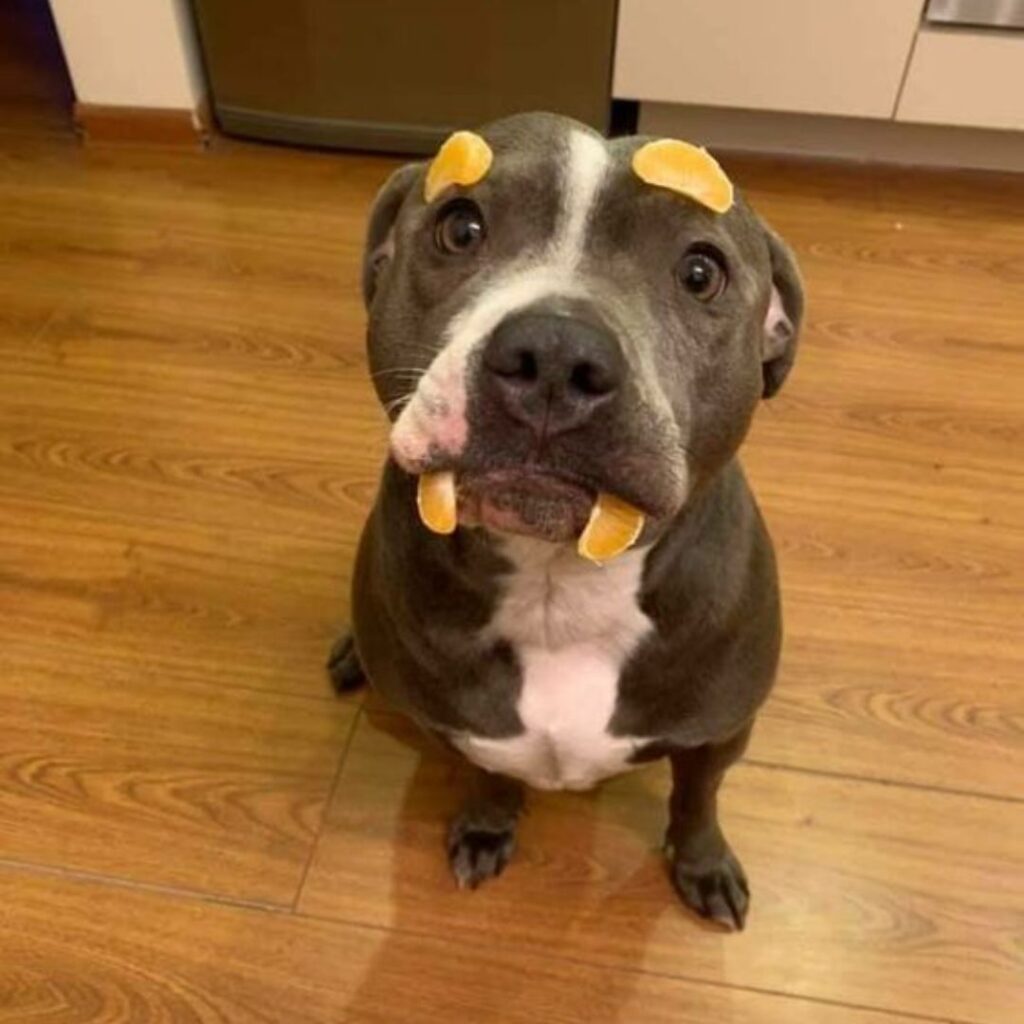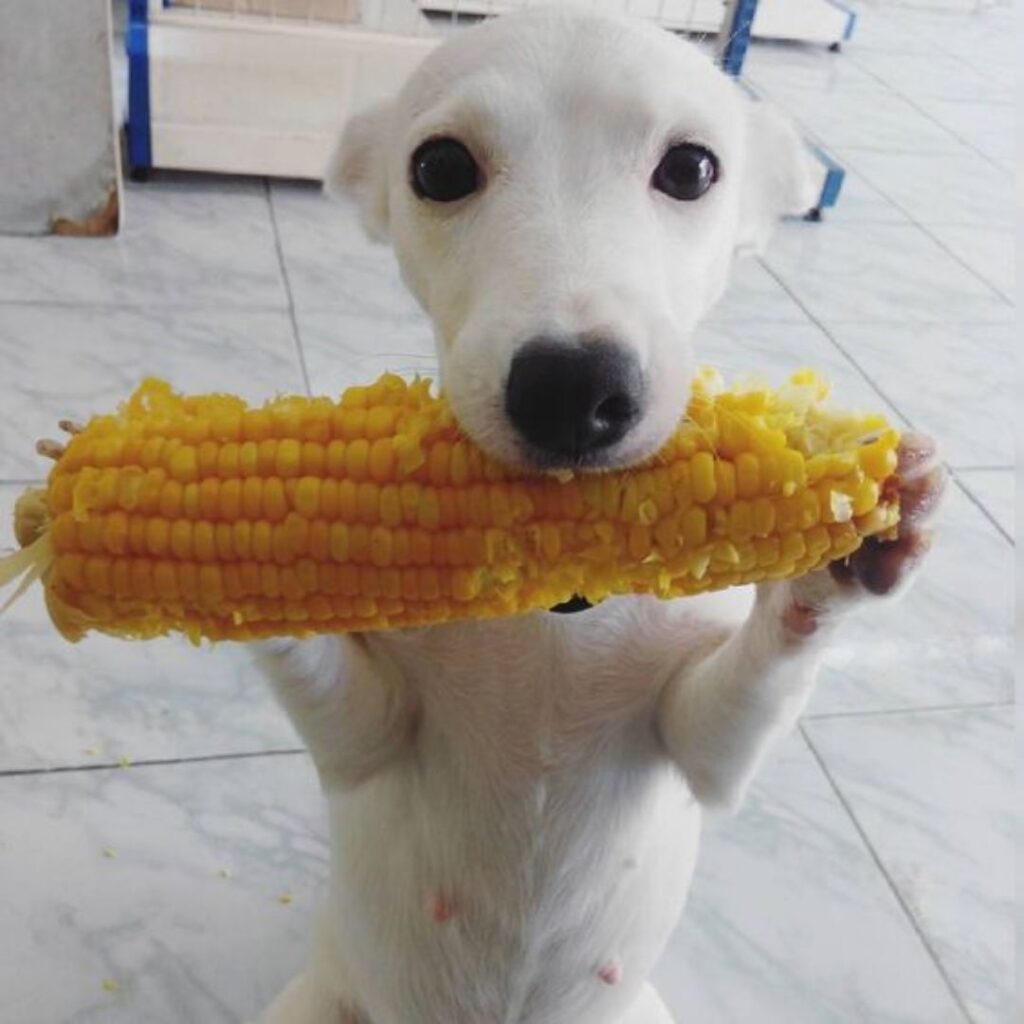As a dog owner, you’ve probably experienced that moment when your furry friend goes in for a loving kiss, only to be met with a wave of less-than-pleasant odor. Bad dog breath is a common issue that many pet parents face, but it’s not something you should ignore. Let’s dive into the causes of stinky dog breath and explore ways to freshen up your pup’s mouth.

Common Causes of Bad Dog Breath
1. Poor Dental Hygiene
Just like humans, dogs need regular dental care. Plaque and tartar buildup can lead to periodontal disease, a major cause of bad breath in dogs.
2. Dietary Factors
What goes in must come out – and sometimes, that includes odor. Certain foods can contribute to bad breath, especially if your dog has food sensitivities.
3. Underlying Health Issues
Bad breath can be a sign of more serious health problems, including:
• Kidney disease
• Liver problems
• Diabetes
• Oral tumors or infections
4. Coprophagia (Eating Feces)
As gross as it sounds, some dogs develop a habit of eating feces, which can lead to terrible breath.
5. Foreign Objects
Sometimes, dogs chew on things they shouldn’t. Stuck objects in the mouth or teeth can cause bad odors.

Signs to Watch For
Besides the obvious smell, look out for:
• Excessive drooling
• Difficulty eating or loss of appetite
• Pawing at the mouth
• Yellow or brown teeth
• Swollen or bleeding gums
Solutions for Fresher Breath
1. Regular Dental Care
• Brush your dog’s teeth daily with dog-specific toothpaste
• Use dental chews or toys designed to clean teeth
• Consider professional dental cleanings by your vet
2. Diet Adjustments
• Switch to high-quality dog food
• Avoid table scraps that might upset your dog’s stomach
• Try dental diet foods formulated to reduce plaque
3. Plenty of Fresh Water
Keeping your dog hydrated helps wash away bacteria and food particles
4. Regular Vet Check-ups
Annual exams can catch dental issues early and address underlying health problems
5. Natural Remedies
• Parsley or mint leaves (in moderation) can freshen breath
• Coconut oil has antimicrobial properties that can help oral health
6. Address Behavioral Issues
If your dog is eating feces, work with a trainer to correct this behavior

When to See a Vet
While some degree of dog breath is normal, persistently bad odor or sudden changes in breath smell warrant a trip to the vet. This is especially true if accompanied by other symptoms like lethargy, vomiting, or changes in eating habits.
Preventing Bad Dog Breath
Prevention is always better than cure. Here are some tips to keep your dog’s breath fresh:
1. Start dental care early in your dog’s life
2. Make teeth brushing a positive experience with praise and treats
3. Provide chew toys that promote dental health
4. Be consistent with dental care routines
5. Choose foods and treats that support oral health
The Impact of Breed on Oral Health
Some breeds are more prone to dental issues:
• Small breeds often have overcrowded teeth
• Brachycephalic (flat-faced) breeds can have misaligned jaws
• Some breeds are genetically predisposed to periodontal disease
If you own one of these breeds, extra vigilance in dental care is crucial.

The Fresh Breath Test
Not sure if your dog’s breath is normal? Try this simple test:
1. Gently lift your dog’s lip
2. Check the gums and teeth for redness, swelling, or discoloration
3. Take a whiff – normal dog breath shouldn’t be offensive
Conclusion
Bad dog breath isn’t just an inconvenience – it can be a sign of serious health issues. By staying proactive with dental care, maintaining a healthy diet, and addressing problems early, you can help ensure your furry friend has fresh breath and good overall health.
Remember, your dog relies on you for their well-being. Regular dental care isn’t just about fresh kisses; it’s an essential part of your pet’s health routine. If you’re ever in doubt about your dog’s oral health, don’t hesitate to consult with your veterinarian. After all, a healthy mouth contributes to a happy, healthy dog – and that’s something every pet owner can smile about!
Check out a quick guide on Owning an XL Bully in Scotland